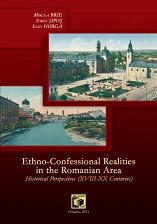Notions of Belonging in 20th-Century Romanian-German Literature
Notions of Belonging in 20th-Century Romanian-German Literature
Author(s): Orsolya Nagy-SzilveszterSubject(s): Politics / Political Sciences
Published by: Editura Universitatii din Oradea
Keywords: Romanian-German literature; identity; migration; periphery; center
Summary/Abstract: Language and literature have an essential role in determining and conserving ethnical identity. German minorities and German literature from Romania have received great interest in the last few decades, although the ethnical groups denoted by the coined term “rumäniendeutsch” (Romanian-German) consisting of Banat-Swabians (Banater Schwaben), Transylvanian Saxons (Siebenbürger Sachsen), and Bukovina Germans (Buchenlanddeutschen), have been experiencing dramatical decrease in population due to the burdensome heritage of the past. The mass-murders, the deportation, enforced exodus or chosen emigration has had a deep impact on the regional literary creation: a great number of German writers, poets, literary critics born in Romania moved to the Federal Republic of Germany, the German cultural and literary activity in Romania has shrunk extremely and writing the obituary of the Romanian-German literature has been a sore subject of debate. Following some traces of historical and socio-political contexts this paper aims at the investigation of identity-related notions in the field of Romanian-German literature of the twentieth century, trying to elucidate and exemplify notions of minority literature, concepts of island, periphery, border, center, “volksdeutsch”, home or “Heimat” and notions of belonging, the experience of migration and displacement in the literary vision and creation of some German authors born in Romania.
Journal: Eurolimes
- Issue Year: 2011
- Issue No: Suppl02
- Page Range: 225-241
- Page Count: 17
- Language: English
- Content File-PDF

